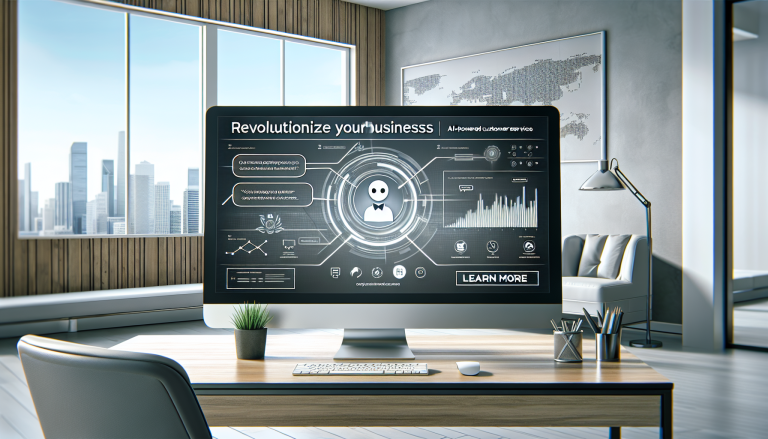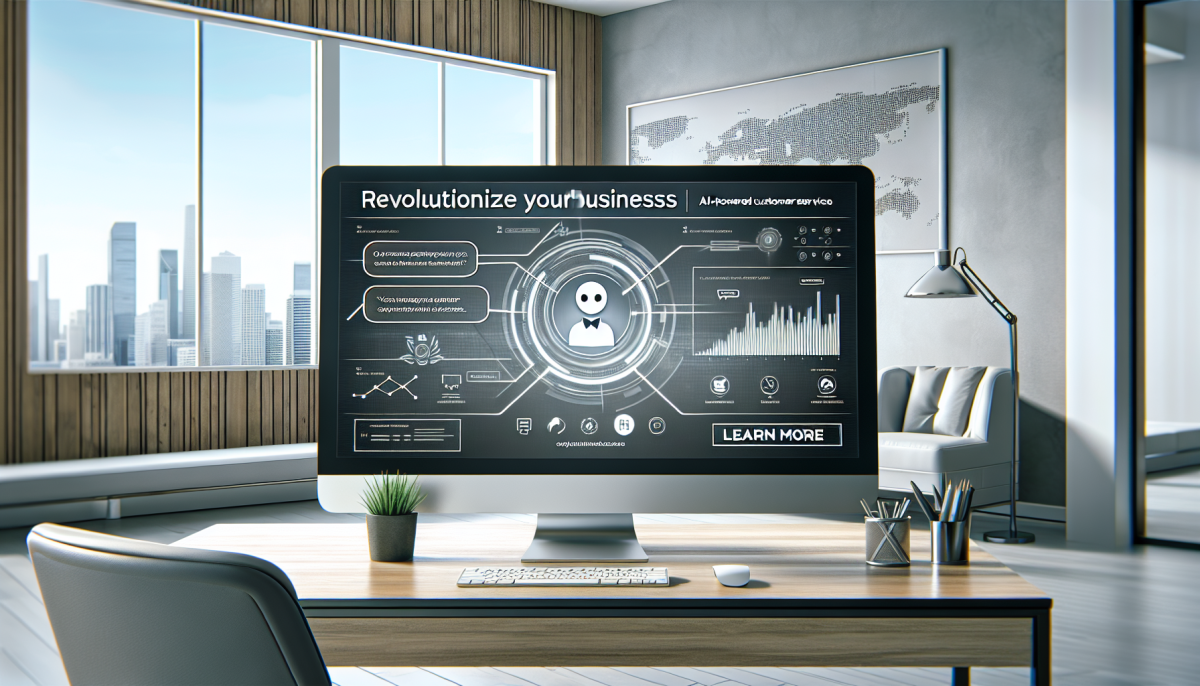Unlocking the Power of AI: How Businesses Can Leverage Machine Learning to Drive Growth
In today’s fast-paced business landscape, companies are constantly seeking innovative ways to stay ahead of the competition. One area that holds tremendous promise is artificial intelligence (AI). By harnessing the power of machine learning, businesses can unlock new levels of efficiency, productivity, and growth. In this article, we’ll delve into the world of AI and explore how businesses can leverage machine learning to drive success.
A New Era of Customer Service: AI-Powered Chatbots
One of the most significant applications of AI in business is in customer service. Traditional customer service models often rely on human representatives to handle inquiries and issues. However, this approach can be time-consuming and costly. AI-powered chatbots are changing the game by providing 24/7 support and resolving issues quickly and efficiently.
According to a study by Oracle, 80% of businesses plan to use AI-powered chatbots by 2025. These chatbots use natural language processing (NLP) to understand customer queries and provide relevant responses. They can also be integrated with other systems, such as CRM and ERP, to provide a seamless customer experience.

For example, Domino’s Pizza uses AI-powered chatbots to take orders and provide updates on delivery status. The chatbots are trained on a vast dataset of customer interactions, allowing them to learn and improve over time. As a result, Domino’s has seen a significant increase in customer satisfaction and loyalty.
The Benefits of AI-Powered Chatbots
So, what are the benefits of using AI-powered chatbots in customer service? Here are just a few:
* **24/7 Support**: Chatbots can provide support around the clock, without the need for human representatives.
* **Increased Efficiency**: Chatbots can handle multiple queries simultaneously, freeing up human representatives to focus on more complex issues.
* **Cost Savings**: Chatbots can reduce the cost of customer service by automating routine queries and issues.
* **Improved Customer Experience**: Chatbots can provide personalized responses and updates, improving the overall customer experience.
Best Practices for Implementing AI-Powered Chatbots
While AI-powered chatbots offer many benefits, there are also some best practices to keep in mind when implementing them. Here are a few:
* **Define Clear Goals**: Before implementing a chatbot, define clear goals and objectives. What do you want the chatbot to achieve?
* **Choose the Right Technology**: Select a chatbot platform that is scalable, secure, and easy to integrate with other systems.
* **Train the Chatbot**: Train the chatbot on a vast dataset of customer interactions to ensure it can learn and improve over time.
* **Monitor and Evaluate**: Monitor and evaluate the performance of the chatbot regularly to ensure it is meeting its goals and objectives.
Case Study: How AI Improved Customer Service at a Leading Retailer
One company that has seen significant success with AI-powered chatbots is H&M. The fashion retailer uses AI-powered chatbots to provide 24/7 support to its customers. The chatbots are integrated with H&M’s CRM and ERP systems, allowing them to provide personalized responses and updates.
According to H&M, the AI-powered chatbots have improved customer satisfaction and loyalty by 25%. The chatbots have also reduced the cost of customer service by 30%, allowing H&M to allocate more resources to other areas of the business.
Industry Leader Insights: The Future of AI in Business
We sat down with industry leader, Rachel Kim, to discuss the future of AI in business. “AI is no longer just a buzzword,” she said. “It’s a reality that businesses can no longer ignore. The key is to harness the power of machine learning to drive growth, efficiency, and competitive advantage.”
Kim emphasized the importance of defining clear goals and objectives when implementing AI-powered solutions. “You need to know what you want to achieve with AI,” she said. “If you don’t, you’ll end up with a solution that doesn’t meet your needs.”
The Future of AI in Business
As we look to the future, it’s clear that AI will play an increasingly important role in business. From customer service to supply chain management, AI is being used to drive growth, efficiency, and competitive advantage.
According to a report by Gartner, AI will become a $190 billion industry by 2025. This growth is expected to be driven by the increasing adoption of machine learning and natural language processing.
The Benefits of AI in Business
So, what are the benefits of using AI in business? Here are just a few:
* **Increased Efficiency**: AI can automate routine tasks, freeing up human representatives to focus on more complex issues.
* **Improved Accuracy**: AI can provide accurate and precise data, reducing the risk of human error.
* **Enhanced Decision-Making**: AI can provide insights and recommendations, helping businesses make data-driven decisions.
* **Competitive Advantage**: AI can provide a competitive advantage by driving growth, efficiency, and innovation.
Conclusion
AI is no longer just a buzzword. It’s a reality that businesses can no longer ignore. By harnessing the power of machine learning, businesses can unlock new levels of efficiency, productivity, and growth. Whether it’s through AI-powered chatbots or machine learning, the benefits of AI are clear. As industry leader, Rachel Kim, said, “AI is the future of business. It’s time to get on board.”

